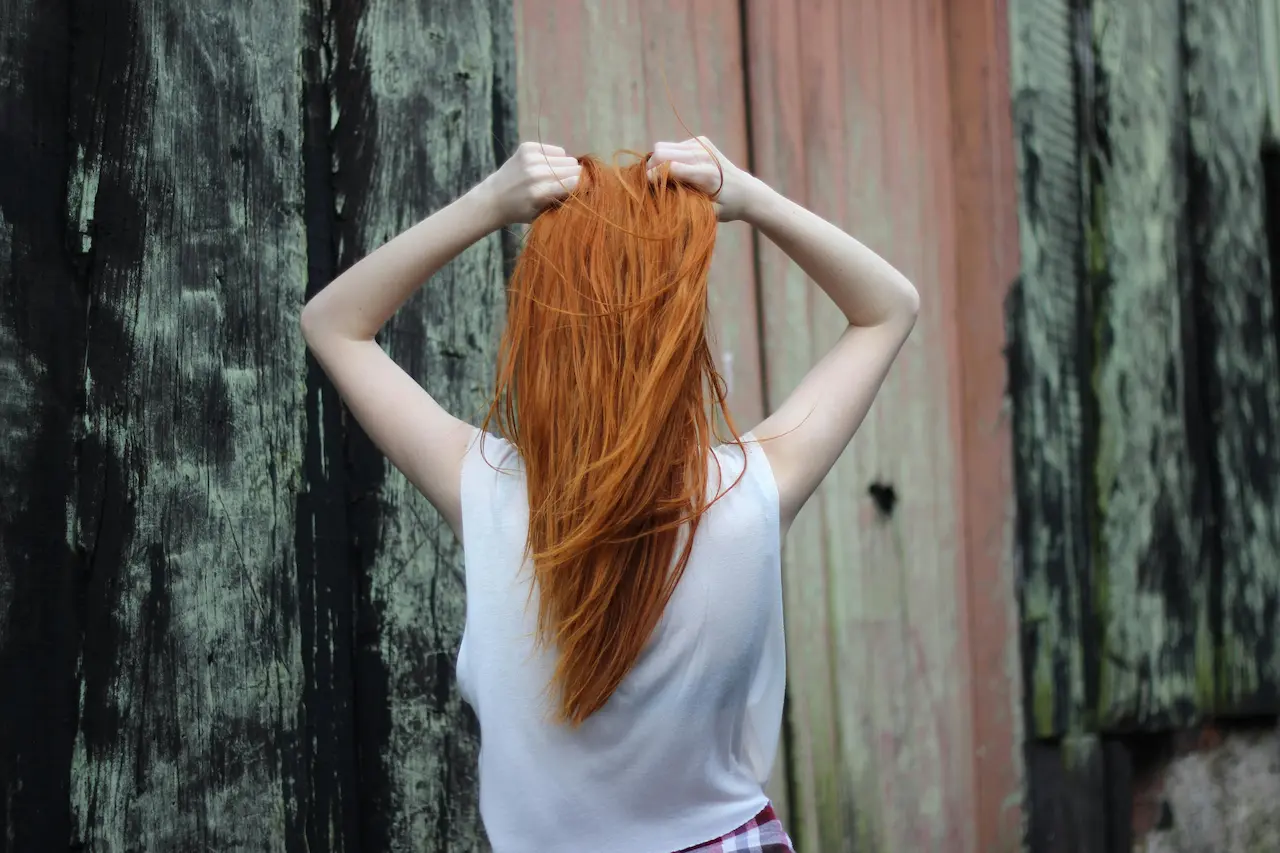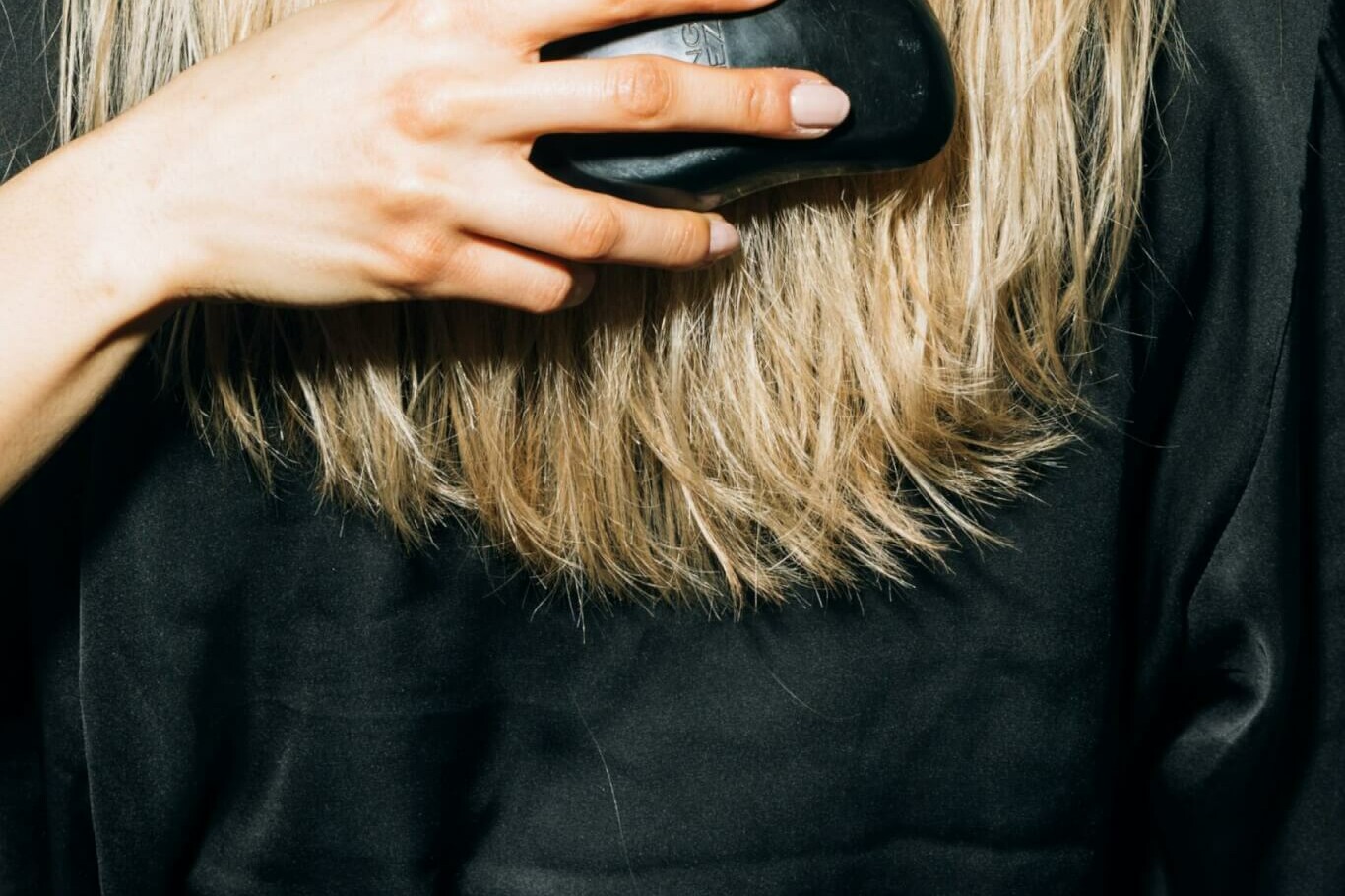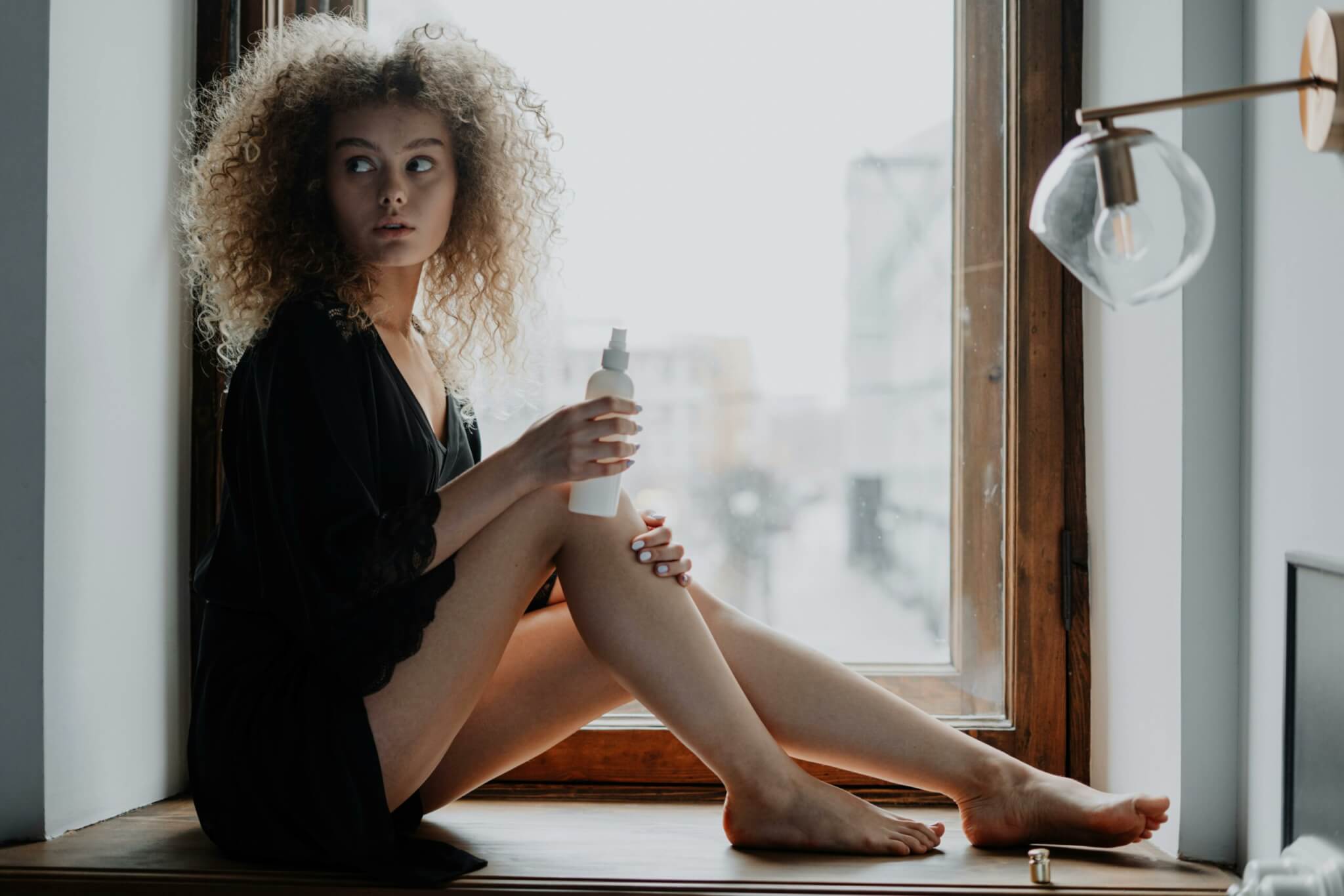Thank you for getting in touch. This is something that I’m seeing more and more of with patients that have had Covid. Firstly, I want you to take a deep breath and let me tell you that your hair shedding will slow down.
You are experiencing Telogen effluvium. This has been caused by the high temperature that your body experienced when you had the Coronavirus. This has caused a lot of people to experience symptoms like you are.
Lots of shedding and hair thinning. Sometimes, as well as the high temperature causing Telogen effluvium the level of emotional stress caused by Covid can also lead to this type of hair loss. The virus has caused your hair to shed more than it normally would.
On average we lose 80 – 100 hairs a day. This is a normal shedding cycle and most people don’t even notice. This can be loose hairs on your clothes, in the shower or on your hairbrush.
Telogen effluvium can happen not just after Covid but after any viral infection that gives you a high fever. This type of hair loss can also be experienced after an operation, hormonal changes, over or under active thyroid and high levels of stress.
Stress in general is a trigger for hair shedding and the more you worry about your hair loss the worse the problem will get. It’s a vicious cycle.
The hair shedding is caused by interruption in the hair growth cycle. It won’t damage your hair or your hair follicle but it causes more hair shedding than normal, so instead of 80-100 hairs a day you could lose 300 or 400 hairs a day.
This is why your hair is feeling thinner suddenly. This type of shedding usually starts 3 to 4 months after the infection. The hair is being pushed into the telogen or shedding phase quicker than normal.
Hair will grow back over time once your body has recovered. You should start to see slowing in your hair shedding around the 6-9 month mark. By the time you’ve reached a year after having Covid your hair should be back to normal.
If the shedding is still at the level it is now at the one-year mark I would suggest that you go to your GP and have some blood tests to see if there is any other underlying condition.
In the meantime, it’s important to try and not stress about your hair as this will only make matters worse. As hard as this is some lifestyle changes to relax you can really help.
Try yoga or meditation, listening to music you enjoy while taking a walk can all help to de-stress you. Eating a balanced healthy diet will help get your body and immune system back on. track after being ill. Lots of leafy greens and plenty of water are all good for your hair growth.
Use a shampoo with no sulphates or harsh sodium’s and always use a hydrating conditioner. Be gentle with your hair, keep it away from harsh heat and use soft natural bristle brushes when you style your hair.
Keep your hair in softer styles when you wear it up, as too much tension on Your hair can cause breakage. People suffering with long-Covid can find that their hair loss can last longer. Once again talking to your GP will help give you some other options and help you with options for supplements. Getting a blood test to make sure you’re not suffering with anemia or any underlying thyroid condition is also a good idea as both of these conditions can cause hair loss.
Here are a few other things to help get your hair back on track
Sleep On A Silk Pillowcases
Sleeping on a silk pillowcase will keep your hair healthy and eliminate any friction that’s caused from sleeping on cotton. It will keep your hair looking silky while keeping it stronger and stop it from breaking while moving around while you sleep.
It’s also hypo-allergenic and great for your skin too. It will keep you cooler during the night so that your scalp won’t perspire so much. All in all, it will guarantee better hair and a better night’s sleep.
Get A Good Night’s Sleep
Getting a good 7 or 8 hours sleep every night is a great way to keep yourself healthy. When your body and mind is well rested it helps your immune system and will aid in you recovering from being ill.
If you find it hard to sleep do little things like taking a relaxing bath an hour before you plan to go to bed. Listen to relaxing music or sounds that soothe you such as waves or rain sounds.
Put any devices like phones or iPads away an hour before bed time and don’t drink tea or coffee for at least two hours before you plan to sleep. Instead try a chamomile tea or a relaxing herbal tea before bed.
Use Hair Pieces
If you find that your hair is looking thinner and this is causing you anxiety and effecting your confidence you can add some hair pieces to give your hair more volume.
Natural hair pieces that are made for finer hair will blend in with your hair and will definitely give you a boost. They are undetectable when they are in your hair and you will be able to match them to your hair colour so that no-one will know that you’re wearing them.
"Remember with Hair Health Essentials Better Hair days Are Ahead"
Related Posts
September 6, 2025
Scalp Barrier 101 — How to Rebuild What Over-Cleansing Breaks
Your scalp is more than just the skin under your hair — it’s a living…
November 15, 2024
The Art of Detangling: How to Protect Your Wet Hair from Breakage and Split Ends
Detangling wet hair is a common part of many people’s hair care routine, yet…
November 12, 2024
The Hidden Risks of Dry Shampoo: How Overuse Can Impact Your Scalp Health and Hair Growth
Dry shampoo has become a beauty staple for many people, offering a quick and…





